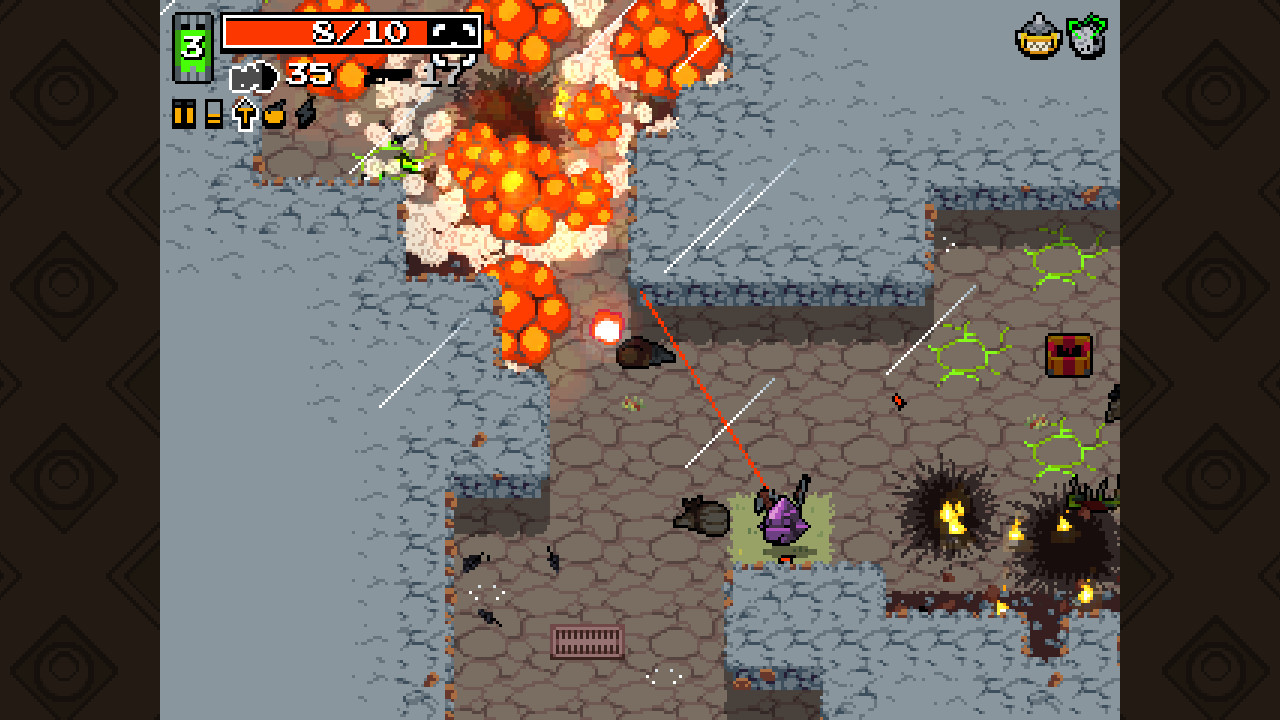A game I consistently play from time to time is Nuclear Throne, a fairly addictive twin-stick shooter where you try to reach the eponymous Nuclear Throne. Which you won’t, since the game is fairly hard too. It’s also one of the most highly rated games on Steam with a 96% approval rating (while not being super-niche)—which means it must be good, right?
The basic premise of the game is that you move through procedurally generated levels while fighting enemies from a top-down perspective with various randomly-obtained weapons. As you reach higher levels, the enemies get harder but you are also able to obtain better weapons (still randomly, from chests), leading to an interesting power balance. Eventually (if you get that far) you are facing off against green blobs firing virtually insta-kill plasma balls while running away against other green blobs with insta-kill bite attacks. But you have a nuclear missile-launching bazooka. If you are lucky. Otherwise you have a really slow-firing crossbow. And then you die… probably.

The game by itself only has local co-op, but there is a fairly good online multiplayer mod for the game that enables two people to play together over the internet. It even works with the the Steam friends list for invites, which is pretty good.
Also of note from the developers of the game is Super Crate Box, which is free and also very addictive.



